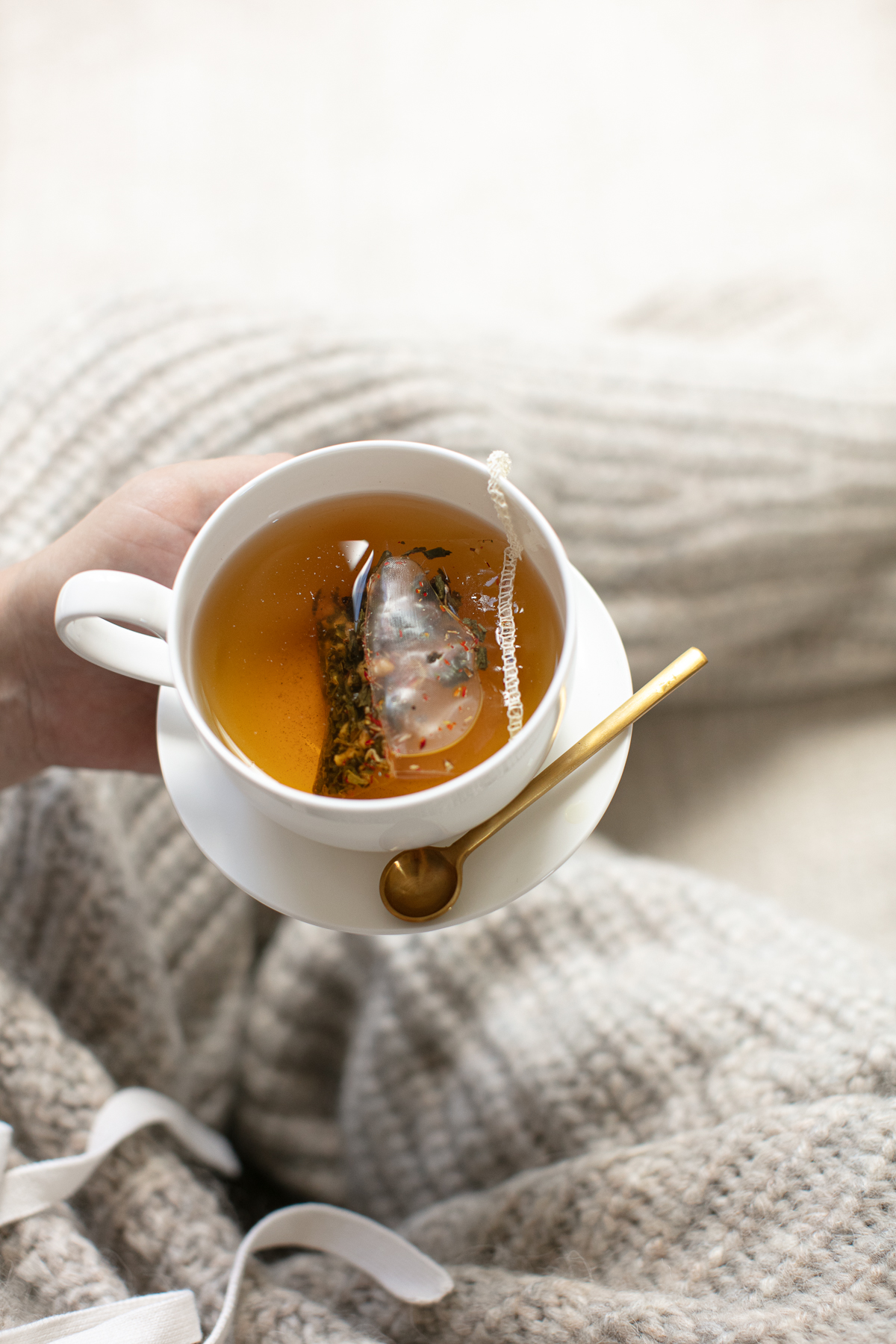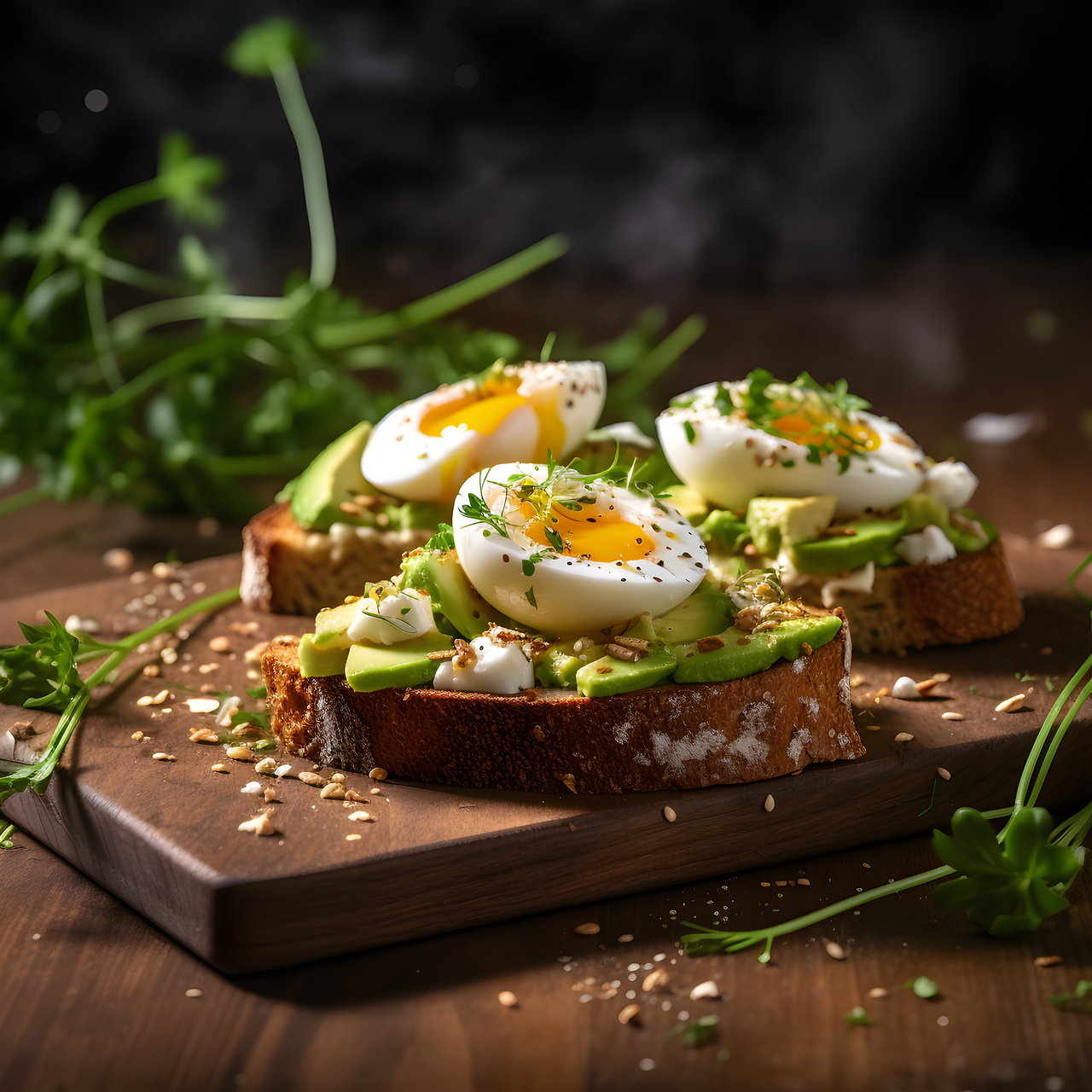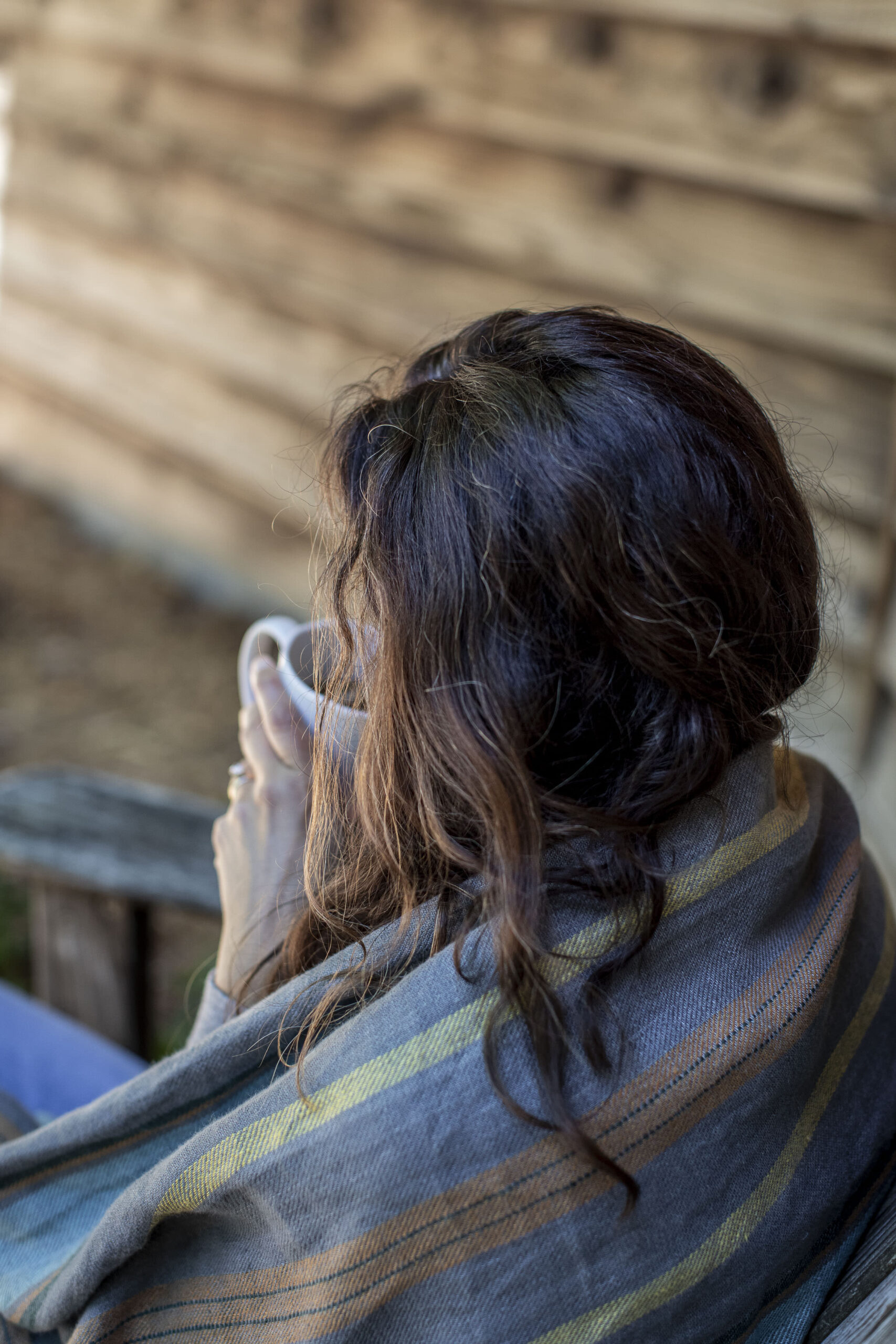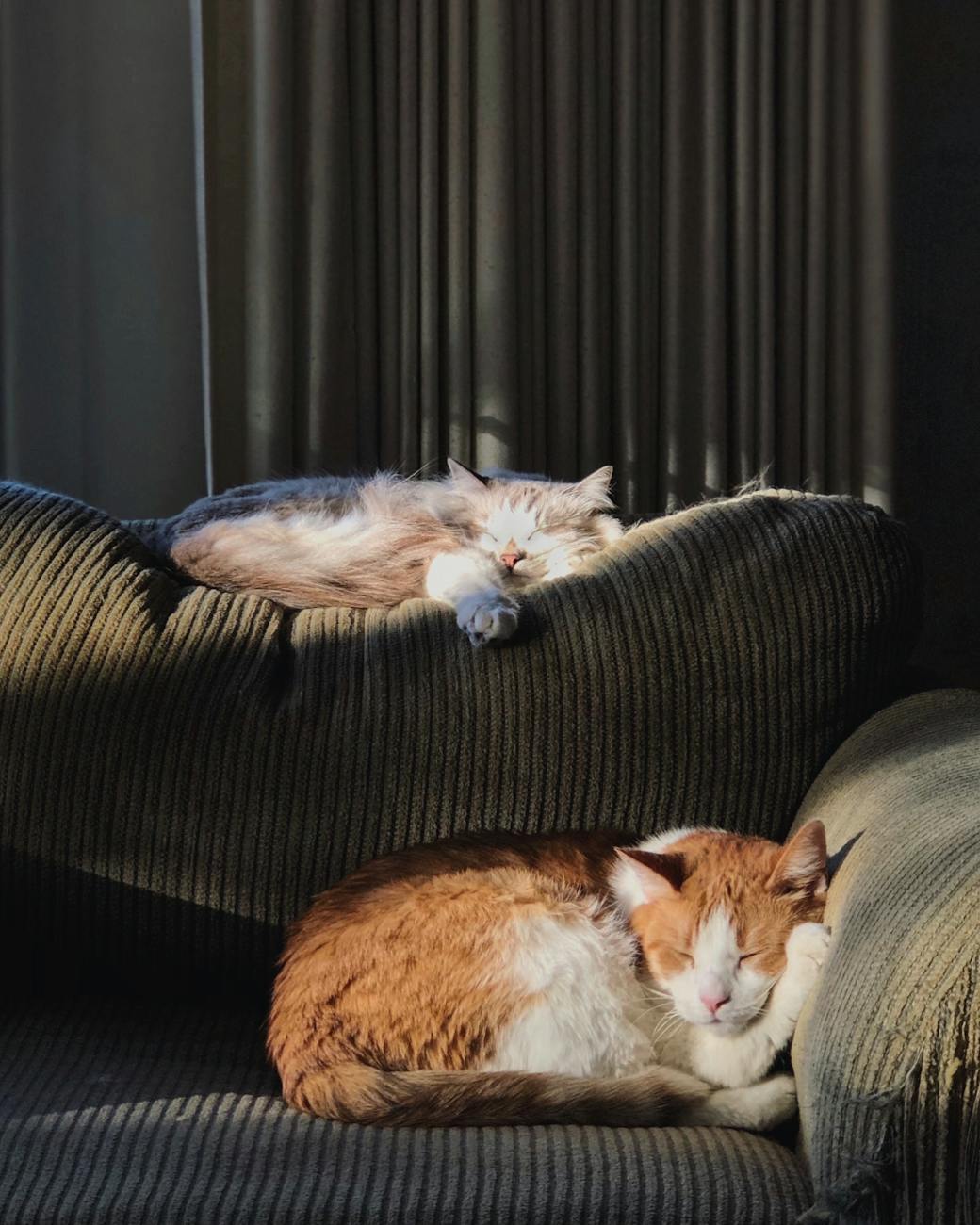
Anxiety affects millions of people worldwide, with women over 60 experiencing unique challenges as they navigate life transitions, health concerns, and the natural changes that come with aging. While pharmaceutical interventions have their place, many are turning to gentle, time-tested herbal remedies that work harmoniously with the body’s natural systems.
As a psychiatric nurse practitioner with over 15 years of clinical experience, I’ve witnessed firsthand how thoughtfully chosen herbal teas can provide meaningful anxiety relief when used as part of a comprehensive wellness approach. The key lies in understanding the science behind these botanical medicines and using them safely and effectively.
The Neurochemistry of Herbal Anxiety Relief
When we experience anxiety, our nervous system becomes dysregulated. Stress hormones like cortisol flood our system, our sympathetic nervous system activates the “fight or flight” response, and neurotransmitter balance shifts. Herbal teas work by gently modulating these same pathways, offering relief through multiple mechanisms.
Unlike synthetic medications that target single pathways, medicinal plants contain complex compounds that work synergistically to calm the nervous system. This multi-target approach often results in fewer side effects and a more balanced therapeutic effect.
Chamomile: The GABA Connection
Scientific Name: Matricaria chamomilla
Chamomile stands as one of the most researched anxiolytic herbs, with over 40 studies supporting its calming effects. The secret lies in a compound called apigenin, which acts as a mild benzodiazepine receptor agonist in the brain.
How It Works
Apigenin binds to GABA (gamma-aminobutyric acid) receptors, the same receptors targeted by anti-anxiety medications like Xanax or Valium, but with a much gentler effect. GABA is your brain’s primary inhibitory neurotransmitter, essentially acting as nature’s “brake pedal” for anxious thoughts and physical tension.
When apigenin binds to these receptors, it enhances GABA’s calming effects, leading to:
- Reduced muscle tension
- Slower heart rate
- Decreased racing thoughts
- Improved sleep quality
- Lower cortisol levels
Clinical Evidence
A landmark 2016 study published in Phytomedicine (https://pubmed.ncbi.nlm.nih.gov/27912875/) followed 179 participants with generalized anxiety disorder for 8 weeks. Those receiving chamomile extract showed significant improvements in anxiety scores compared to the placebo group, with effects lasting even after treatment ended.
Safe Usage Guidelines for Chamomile
Brewing Method: Steep 1-2 teaspoons of dried chamomile flowers in 8 oz of hot water (not boiling) for 10-15 minutes. Strain and enjoy up to 3 times daily.
Optimal Dosage: 400-1600mg of chamomile extract daily, or 2-3 cups of properly brewed tea.
Timing: Most effective 30-60 minutes before stressful situations or 1 hour before bedtime for sleep support.
L-Theanine: Green Tea’s Calm Focus Compound
Scientific Name: Camellia sinensis
Green tea contains a unique amino acid called L-theanine that creates what researchers call “relaxed alertness” – the ability to remain calm and focused simultaneously. This makes green tea particularly valuable for anxiety that interferes with concentration and productivity.
The Alpha Wave Effect
L-theanine increases alpha brain wave production within 30-40 minutes of consumption. Alpha waves are associated with relaxed, meditative states of consciousness. Unlike other calming compounds that can cause drowsiness, L-theanine promotes tranquility while maintaining mental clarity.
The compound works by:
- Increasing GABA, serotonin, and dopamine production
- Blocking glutamate (an excitatory neurotransmitter) receptors
- Modulating cortisol response to stress
- Enhancing alpha brain wave activity
Balancing Act with Caffeine
Green tea’s genius lies in its natural combination of L-theanine and caffeine. While caffeine alone can increase anxiety, L-theanine buffers these effects, creating sustained energy without jitters or crashes. The typical ratio in green tea is about 2:1 L-theanine to caffeine.
Clinical Research
A 2019 systematic review in Nutrients (https://pubmed.ncbi.nlm.nih.gov/31623400/) analyzed 21 studies on L-theanine and found consistent evidence for its anti-anxiety effects, particularly in stressful situations. Participants showed improved attention, reduced stress responses, and better sleep quality.
Safe Usage Guidelines for Green Tea
Brewing Method: Steep 1 teaspoon of high-quality green tea leaves in 160-180°F water for 2-3 minutes. Over-steeping releases more tannins and can increase anxiety-provoking caffeine.
Optimal Dosage: 100-200mg L-theanine daily (approximately 3-5 cups of green tea), or supplement form for higher doses.
Timing: Best consumed in the morning or early afternoon to avoid sleep interference from caffeine.
Additional Science-Backed Anxiety-Relief Herbs
Passionflower (Passiflora incarnata)
Research shows passionflower increases GABA levels and has been found as effective as oxazepam (a prescription anti-anxiety medication) in some studies, but without the sedative side effects.
Brewing: Steep 1 teaspoon dried herb in hot water for 10-15 minutes. Safe for up to 4 weeks of regular use.
Lemon Balm (Melissa officinalis)
This mint family herb contains rosmarinic acid, which inhibits GABA breakdown, allowing your body’s natural calming neurotransmitters to remain active longer.
Brewing: Use fresh leaves when possible (2 tablespoons) or 1 teaspoon dried. Steep for 5-10 minutes.
Critical Safety Considerations and Drug Interactions
⚠️ Important Medical Disclaimer: Always consult with a healthcare provider before adding herbal teas to your routine, especially if you take medications or have medical conditions.
Medication Interactions to Know
Sedative Medications: Chamomile, passionflower, and lemon balm can amplify the effects of sleep aids, benzodiazepines, and other central nervous system depressants.
Blood Thinners: Chamomile contains coumarin compounds that may interact with warfarin and other anticoagulants.
Diabetes Medications: Some herbs can affect blood sugar levels, potentially requiring medication adjustments.
Liver Medications: Green tea in large quantities can affect liver enzyme activity and medication metabolism.
Special Considerations for Women 60+
- Start with lower doses and increase gradually
- Monitor for any unusual symptoms or medication effects
- Consider kidney function when consuming large amounts of fluids
- Discuss with prescribing physicians before making changes
Optimal Brewing Techniques for Maximum Benefits
Water Temperature Matters
- Delicate herbs (chamomile, lemon balm): 200°F water
- Green tea: 160-180°F water
- Heartier herbs (passionflower): Full boiling water
Steeping Time Guidelines
- Flowers and leaves: 5-15 minutes
- Roots and bark: 15-20 minutes
- Green tea: 2-3 minutes maximum
Quality Sourcing
Choose organic, third-party tested herbs from reputable suppliers. Look for herbs that are:
- Recently harvested (within 1-2 years)
- Properly stored in airtight containers
- Free from pesticides and heavy metals
- Sourced from sustainable farms
Creating Your Personal Anxiety-Relief Tea Ritual
Morning Calm Blend
- 1 part green tea
- 1 part lemon balm
- ½ part chamomile
This combination provides sustained energy with anxiety protection throughout the day.
Evening Relaxation Blend
- 2 parts chamomile
- 1 part passionflower
- ½ part lemon balm
- Pinch of lavender (optional)
Perfect for unwinding and preparing for restorative sleep.
The Mindful Tea Ceremony Approach
Transform your herbal tea consumption into a therapeutic ritual by:
- Setting Intention: Before brewing, take three deep breaths and set an intention for calm
- Mindful Preparation: Focus on the sounds, smells, and visual beauty of the brewing process
- Conscious Consumption: Sip slowly, noticing temperature, flavor, and bodily sensations
- Gratitude Practice: Acknowledge the plants, farmers, and natural processes that brought this healing to you
This mindfulness component amplifies the physiological benefits through the mind-body connection.
When to Seek Professional Support
While herbal teas offer gentle, effective anxiety relief, they work best as part of a comprehensive approach to mental wellness. Consider professional support if you experience:
- Panic attacks or severe anxiety symptoms
- Anxiety that interferes with daily functioning
- Depression alongside anxiety
- Physical symptoms like chest pain or shortness of breath
- Thoughts of self-harm
A qualified healthcare provider can help determine whether herbal remedies are appropriate for your specific situation and can be safely combined with other treatments.
The Integration Advantage
The beauty of herbal anxiety relief lies not in replacing conventional medicine, but in creating a more complete, personalized approach to mental wellness. When we understand the science behind these plant medicines, we can use them skillfully as part of a broader toolkit that might include therapy, lifestyle changes, community support, and when necessary, pharmaceutical interventions.
Many of my clients over 60 find that starting with gentle herbal support helps them feel more empowered in their healing journey. As they experience the calming effects of a well-chosen tea blend, they often become more motivated to explore other evidence-based approaches to anxiety management.
Remember, healing is rarely linear, and what works beautifully for one person may need adjustment for another. The key is approaching herbal medicine with both respect for traditional wisdom and appreciation for modern scientific understanding.
Ready to explore how herbal teas can support your journey to calmer days and more restful nights? Consider working with a qualified practitioner who can help you create a personalized approach that honors both your unique needs and the powerful healing potential of plants.
Resources:
USP Dietary Supplement Verification: https://www.usp.org/verification-services/dietary-supplements-verification-program
ConsumerLab supplement testing: https://www.consumerlab.com/
Organic certification standards: https://www.ams.usda.gov/services/organic-certification
You may also like:
How Herbal Teas Actually Calm Anxiety: The Science-Backed Guide to Natural Relief
August 26, 2025
meet inge
I’m Inge, a Psychiatric Nurse Practitioner passionate about helping others feel grounded, resilient, and well. Here on the blog, I share insights on mental health, prevention, meditation, clean skincare, and nutrition—everything I turn to in my own daily life. I hope this space becomes a trusted part of your wellness journey.
LATEST FROM THE BLOG


Has this ever happened to you? You wake up exhausted, even though you slept eight hours. Your brain feels foggy—like you’re moving through the world behind a pane of glass. Small tasks feel overwhelming. And maybe there’s a heaviness to your mood that doesn’t quite match your life circumstances. If this sounds familiar, you’re not […]

We’ve all heard the stories whispered in coffee shops and support groups. A mother reaches for her phone to call her adult child, then remembers—the number has been blocked. Another sits at a holiday table with an empty chair, the absence more present than anyone who remains. A grandmother holds a birthday card she’ll never […]

You know that moment… When you wake up in those first days after surgery and the reality hits you: your body feels broken. Your hip, knee, or shoulder—the very joint that’s supposed to carry you through life—is now a source of pain and limitation. Maybe you’re lying there thinking: “I’m too old for this. I’ll […]

Why Deep Sleep Matters More Than You Know How prioritizing your nights could be the most powerful dementia prevention strategy available ============================================================================ YOU KNOW THAT MOMENT… When you drift off to sleep, and your body finally releases the tension of the day. Your mind quiets. Your breathing deepens. For a moment, everything feels… at peace. […]